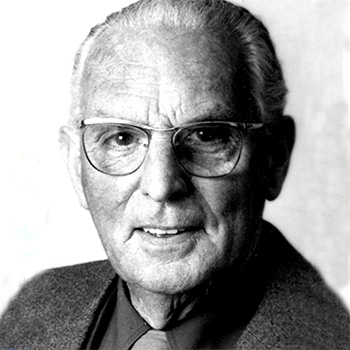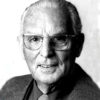Back to series


Four Circles of Intimacy with God
Click here to open a Print - Friendly PDF
It is an incontrovertible fact that some Christians seem to experience a much closer intimacy with God than others. They appear to enjoy a reverent familiarity with Him that is foreign to us. Is it a matter of favoritism or caprice on the part of God? Or do such people qualify in some way for that desirable intimacy?
Frances Havergal envisioned such a life of deepening intimacy:
And closer yet, and closer the golden bonds shall be Enlinking all who love our Lord in pure sincerity; And wider yet, and wider shall the circling glory glow As more and more are taught of God, that mighty love to know.
Are there secrets we may discover that would admit us to a similar intimacy? Our aim will be to answer that question.
 Both Scripture and experience teach that it is we, not God, who determine the degree of intimacy with Him that we enjoy. We are at this moment as close to God as we really choose to be. True, there are times when we would like to know a deeper intimacy, but when it comes to the point, we are not prepared to pay the price involved. The qualifying conditions are more stringent and exacting than we are prepared to meet; so we settle for a less demanding level of Christian living.
Both Scripture and experience teach that it is we, not God, who determine the degree of intimacy with Him that we enjoy. We are at this moment as close to God as we really choose to be. True, there are times when we would like to know a deeper intimacy, but when it comes to the point, we are not prepared to pay the price involved. The qualifying conditions are more stringent and exacting than we are prepared to meet; so we settle for a less demanding level of Christian living.
Everything in our Christian life and service flows from our relationship with God. If we are not in vital fellowship with Him, everything else will be out of focus. But when our communion with Him is close and real, it is gloriously possible to experience a growing intimacy.
In both Old and New Testaments, there are examples of four degrees of intimacy experienced by God’s people. In the Old Testament, it is Moses’ and the nation of Israel’s experience with their God. In the New Testament, it is that of the disciples and their Lord.
Now Moses used to take a tent and pitch it outside the camp some distance away, calling it the “tent of meeting.” Anyone inquiring of the LORD would go to the tent of meeting outside the camp. And whenever Moses went out to the tent, all the people rose and stood at the entrances to their tents, watching Moses until he entered the tent. As Moses went into the tent, the pillar of cloud would come down and stay at the entrance, while the LORD spoke with Moses. Whenever the people saw the pillar of cloud standing at the entrance to the tent, they all stood and worshiped, each at the entrance to his tent. The LORD would speak to Moses face to face, as a man speaks with his friend. Then Moses would return to the camp, but his young aide Joshua son of Nun did not leave the tent.
(Exodus 33:7-11)
In each case, the growing intimacy arose out of a deepening revelation of the divine character.
Dr. J. Elder Cumming contended that “in almost every case the beginning of new blessing is a new revelation of the character of God—more beautiful, more wonderful, more precious.”1 This was certainly true in the case of Moses.
Moses on the Mountain
On several occasions God summoned Moses to ascend Mount Sinai to have fellowship with Him. Twice, the conference lasted for forty days. On one of those occasions, the people of the nation were associated with him. A study of the circumstances reveals that four circles of intimacy developed.
The Outer Circle (Exod. 19:11-12)
As the Law was about to be given, God told Moses to prepare the nation for His manifestation on Mount Sinai. They would see His visible presence, but there were limits beyond which they must not pass. Let them be ready for the third day, for on the third day the Lord will come down on Mount Sinai in the sight of all the people. And you shall set bounds for the people all around, saying, “Beware that you do not go up on the mountain.”
The people could approach the mountain, but they could not ascend it, on pain of death. Barriers were erected to keep them at a distance from God. “Moses alone, however, shall come near to the LORD, but they shall not come near, nor shall the people come up with him” was the divine dictum (Exod. 24:2).
Why the exclusiveness? The subsequent reactions of the people clearly demonstrated that they were neither qualified for nor desirous of coming too close to God. There were obviously conditions for a fresh revelation of God. They did have a vision of God, but to them “the glory of the LORD was like a consuming fire on the mountain top” (Exod. 24:17).
The Second Circle (Exod. 24:9-11)
Then Moses went up with Aaron, Nadab and Abihu, and seventy of the elders of Israel, and they saw the God of Israel… They beheld God, and they ate and drank.
That group pressed past the barriers that excluded the rest of the nation and had a much more intimate vision of God than the people: “Under His feet there appeared to be a pavement of sapphire, as clear as the sky itself.” They had a limited vision of God in His transcendence, a glimpse of the Eternal. It was probably a theophany. “They beheld God, and they ate and drank.”
They must have felt a very real and conscious sense of the divine presence. Their experience was far in advance of that of the people, but it effected no permanent transformation. Only a short time later, they were found worshiping the golden calf. They had a vision of God but showed that they were not qualified to ascend to the top of the mountain into deeper fellowship with God.
The Third Circle (Exod. 24:13-14)
So Moses arose with Joshua his servant, and Moses went up to the mountain of God. But to the elders he said, “Wait here for us until we return to you.”
How quickly the numbers dwindled as the mountain path grew steeper! Of all Israel, only two qualified for inclusion in the third circle of intimacy. What was Joshua’s special qualification for that privilege? A clue is given in Exodus 33:10- 11: “When all the people saw the pillar of cloud standing at the entrance of the tent, all the people would arise and worship…Thus the LORD used to speak to Moses face to face, just as a man speaks to his friend. When Moses returned to the camp, his servant Joshua, the son of Nun, a young man, would not depart from the tent.”
The tent was the place where the Shekinah glory rested, and where God manifested Himself to His people. “Joshua…would not depart from the tent.” As Moses’ servant, he would have many errands to go on and services to perform, but whenever he was free from those duties, he made his way to the tent. He wanted to be where God manifested Himself. He would have been present on many occasions when the Lord spoke to Moses face to face; thus he enjoyed an intimacy with God excelled only by that of his leader, Moses. Although he fell short of the vision granted to Moses, he ascended higher on the glory-covered mountain than any of his contemporaries. The lesson for us does not need to be spelled out.
The Inner Circle (Exod. 24:15-17)
Then Moses went up to the mountain, and the cloud covered the mountain. And the glory of the lord rested on Mount Sinai, and the cloud covered it for six days; and on the seventh day He called to Moses from the midst of the cloud.
The divine summons must have filled Moses with awe as he climbed alone, for “the glory of the LORD was like a consuming fire on the mountain top” (v. 17). The people in the outer circle saw only the consuming fire and feared. Moses saw in it the glory of God and worshiped.
Moses Experienced a Deepening Intimacy of Communion with God
“Thus the LORD used to speak to Moses face to face, just as a man speaks to his friend” (Exod. 33:11). “With him will I speak mouth to mouth” (Num. 12:8, KJV). What could be more intimate— friend to friend, face to face, mouth to mouth! Is there any parallel to that in our experience?
He Shared the Divine Perspective
He was daring enough to make the request, “Let me know Thy ways” (Exod. 33:13). He desired to know his Friend’s principles of action, to share His purposes, and God opened His heart to Moses and revealed something of His own inner nature.
He Experienced a Searching Test in the Area of Ambition
When the nation turned to worship the golden calf in Moses’ absence, God’s anger was kindled, and He said to Moses, “Now leave me alone so that my anger may burn against them and that I may destroy them. Then I will make you into a great nation” (Exod. 32:10, NIV, italics added). Moses’ integrity and disinterested love for his people found expression in his audacious response to the divine proposition: “But now, please forgive their sin—but if not, then blot me out of the book You have written” (Exod. 32:32, NIV). The intensity and selflessness of his intercession grew out of his growing intimacy with God. Not only did he refuse to profit at their expense, but he was willing to sacrifice his privileged position in their favor.
 He Had a Surpassing Revelation of God’s Glory Communion with God kindled in Moses an intense desire to know Him better. “I pray Thee, show me Thy glory” was his request (Exod. 33:18). God’s answer gave him, and us, an insight into the nature of His glory: “I Myself will make all My goodness pass before you, and will proclaim the name of the LORD before you…. The LORD, the LORD God, compassionate and gracious, slow to anger, and abounding in loving-kindness and truth; who keeps loving-kindness for thousands, who forgives iniquity, transgression and sin; yet He will by no means leave the guilty unpunished” (Exod. 33:19; 34:6-7).
He Had a Surpassing Revelation of God’s Glory Communion with God kindled in Moses an intense desire to know Him better. “I pray Thee, show me Thy glory” was his request (Exod. 33:18). God’s answer gave him, and us, an insight into the nature of His glory: “I Myself will make all My goodness pass before you, and will proclaim the name of the LORD before you…. The LORD, the LORD God, compassionate and gracious, slow to anger, and abounding in loving-kindness and truth; who keeps loving-kindness for thousands, who forgives iniquity, transgression and sin; yet He will by no means leave the guilty unpunished” (Exod. 33:19; 34:6-7).
God’s goodness and glory are enshrined in His name, in His moral character. Moses did not see the full glory of God in its unveiled effulgence—only the afterglow that He left behind as He passed by (Exod. 33:20-23).
Some of God’s Glory Rubbed Off on Moses
“When Moses was coming down from Mount Sinai…Moses did not know that the skin of his face shone because of his speaking with Him” (Exod. 34:29). That is still the divine prescription for radiance. Had we lived in those Old Testament times, in which group would we be found? With the crowd? The seventy-four? The two? The one?
Jesus and His Disciples
From among those early followers who had evidenced their faith in Him, Jesus chose seventy and sent them out two by two to preach for Him. Later, after a night of prayer, He chose twelve to be with Him for training—to learn His ways and imbibe His spirit. Within the twelve, there emerged a circle of three with whom Jesus became especially intimate. They were closer to Him than any of the others. Within the circle of three, there was one who appropriated the special place on Jesus’ breast, and through whom the disciples channeled questions to the Master (John 13:25). “He, leaning back thus on Jesus’ breast” is the way John described his privileged position. Seventy, twelve, three, one! In which group would we be found? Each of the disciples was as close to Jesus as he chose to be, for the Son of God had no favorites. We are similarly self-classifying.
G. Campbell Morgan wrote concerning the special three:
There can be no doubt that these men, Peter, James and John, were the most remarkable in the apostolate. Peter loved Him; John He loved; James was the first to seal his testimony with his blood. Even their blunders proved their strength. They were the men of enterprise; men who wanted thrones and places of power…. Mistaken ideas, all of them, and yet proving capacity for holding the keys and occupying the throne. What men from among that first group reign today as these men?
On four special occasions, Jesus admitted them to experiences from which they learned precious lessons. On the occasion of the raising of Jairus’ daughter (Luke 8:51), they were granted a preview of their Lord’s mastery over death and saw His gentleness with the little lass.
On the mount of transfiguration (Matt. 17:1), they gained clearer insight into the importance of His impending death, although they grasped its significance very inadequately (Luke 18:34). There, too, they had a preview of His glory and majesty. “We beheld His glory,” recalled John (1:14). “We…were eyewitnesses of His majesty,” said Peter (1:16).
On the Mount of Olives (Mark 13:3), they marveled at His prophetic discernment, as He shared with them the sweep of the divine purposes and the inner secrets of God.
In the Garden of Gethsemane (Matt. 26:37), they glimpsed in the sufferings of the Savior something of the cost of their salvation, although they were at a loss to interpret His agony. Those were some of the privileges of the inner circle. Could any of the twelve have been among that favored group? Were the three specially selected by the Lord? With Him there is no caprice or favoritism. Their relationship with Him was the result of their own choice, conscious or unconscious. It is a sobering thought that we too are as close to Christ as we really choose to be. The deepening intimacy of the three with Jesus was the result of the depth of their response to His love and training.
 They recognized that intimacy with Him involved responsibility as well as conferred privilege. The Master had told them that “whoever does the will of God, he is My brother and sister and mother” (Mark 3:35). There are some ties that are closer even than those of kinship.
They recognized that intimacy with Him involved responsibility as well as conferred privilege. The Master had told them that “whoever does the will of God, he is My brother and sister and mother” (Mark 3:35). There are some ties that are closer even than those of kinship.
What excluded some disciples from the inner circle? If perfection were the criterion, then Peter the denier and James and John the place-seekers would have been excluded. But they were included. If it were temperament, then surely the volatile Peter, and James and John the fire-eaters would not have found entrance.
Why then did John have the primacy in the group? Because he alone appropriated the place of privilege that was available to all. It was love that drew John into a deeper intimacy with Jesus than the other apostles. Jesus loved them all, but John alone appropriated the title “the disciple whom Jesus loved.” If Jesus loved John more, it was because John loved Him more. Mutual love and confidence are the keys to intimacy.
It would seem that admission to the inner circle of deepening intimacy with God is the outcome of deep desire. Only those who count such intimacy a prize worth sacrificing anything else for, are likely to attain it. If other intimacies are more desirable to us, we will not gain entry to that circle.
The place on Jesus’ breast is still vacant, and open to any who are willing to pay the price of deepening intimacy. We are now, and we will be in the future, only as intimate with God as we really choose to be.
Note
1. J. Elder Gumming, Keswick Week 1906 (London: Marshalls, 1906), p. 22.

J. Oswald Sanders
Author J. Oswald Sanders (1902 - 1992) attended the Bible Training Institute in Auckland and joined its staff in 1926. Sanders served as an instructor and administrator at the Bible College of New Zealand. He became general director of the China Inland Mission and led the reorganization of the CIM into the Overseas Missionary Fellowship. He was instrumental in beginning many new missions projects throughout East Asia. Upon his retirement Sanders wrote prolifically, with many of his over 40 books. One of Sander's most notable works was Heresies Ancient and Modern, later published as Cults and Isms (1962). COPYRIGHT: This publication is published by C.S. Lewis Institute; 8001 Braddock Road, Suite 301; Springfield, VA 22151. Portions of the publication may be reproduced for noncommercial, local church or ministry use without prior permission. Electronic copies of the PDF files may be duplicated and transmitted via e-mail for personal and church use. Articles may not be modified without prior written permission of the Institute. For questions, contact the Institute: 703.914.5602 or email us.
COPYRIGHT: This publication is published by C.S. Lewis Institute; 8001 Braddock Road, Suite 301; Springfield, VA 22151. Portions of the publication may be reproduced for noncommercial, local church or ministry use without prior permission. Electronic copies of the PDF files may be duplicated and transmitted via e-mail for personal and church use. Articles may not be modified without prior written permission of the Institute. For questions, contact the Institute: 703.914.5602 or email us.
-
Recent Podcasts
Ralph Waldo Emerson’s Philosophy and Influence
by David George Moore on July 26, 2024Ralph Waldo Emerson was a gifted nineteenth century...Read More
-
The Side B Stories – Nate Sala’s Story
by Jana Harmon, Nate Sala on July 19, 2024
-
Terrorism Through the Eyes of Faith
by Dennis Hollinger on July 12, 2024
-
Recent Publications
Hasn’t Science Proven That Belief in God Is an Outdated Superstition?
by Sharon Dirckx on July 1, 2024Many assume that scientific practice and belief in...Read More
-
Has the Bible Been Corrupted as Some Muslims Claim?
by Andy Bannister on June 1, 2024
-
Seeing Jesus Through the Eyes of Women
by Rebecca McLaughlin on May 15, 2024
0
All Booked
0.00
All Booked
0.00
All Booked
22194
C.S. Lewis’s The Abolition of Man Live Online Small Group 8:00 PM ET
https://www.cslewisinstitute.org/?event=c-s-lewiss-the-abolition-of-man-study-course&event_date=2024-10-02®=1
https://www.paypal.com/cgi-bin/webscr
2024-10-02

Next coming event
Days
Hours
Minutes
Seconds
C.S. Lewis’s The Abolition of Man Live Online Small Group 8:00 PM ET
On October 2, 2024 at 8:00 pmSpeakers

J. Oswald Sanders
Author
Team Members






